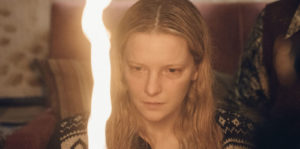
BFI LONDON FILM FESTIVAL 2023 REVIEW! There is something phantasmal within director Daniel Kokotajlo’s Starve Acre, a nudging and barging from other entities as you watch. A piece of Hereditary will float into view, or a scene from The Witch. I have tasted folk horror blended to smooth perfection by Hot Fuzz, but this is more like that stew in Conan full of body parts. Instead of hands and limbs, whole horror films bob into view and then roll away. Does this mean there is an absolute jamboree of things to enjoy here, making it a good addition to a great tradition of folk horror, or does it fail to build its own story?
A family lives on a blasted heath—Juliette (Morfydd Clark), her husband Richard (Matt Smith), and her young son Owen (Arthur Shaw). They have returned from the city to Richard’s ancestral home, Starve Acre, which they feel will be a good environment for their son.
Their world is rendered creepily by Kokotajlo; 70s cars, knitwear, and rain. From the first scene, there is a sense of unease about things. We open on the young couple lying out in the grass at a fete. They discuss getting a babysitter so they can go for a walk, but there is something off about the conversation. Their voices sound thick, sleep-like. Then there are screams, which they follow to see their child has maimed a donkey, blinding it.
This unsettling, Equus-lite tee-off leads us nicely into the plot proper. As Juliet and Richard seek help for their son, the shadowy history of the land starts to intrude on their lives in some very bizarre ways.
The folk horror playbook is used here wonderfully, and expanded upon in a rich and consistent way, but tonally sometimes the ideas slam together like poorly pulled boxcars. One moment you are watching Hellraiser, and then the next, The Ninth Gate. The twists in tone started to draw incredulous laughter rather than suspense in my auditorium.
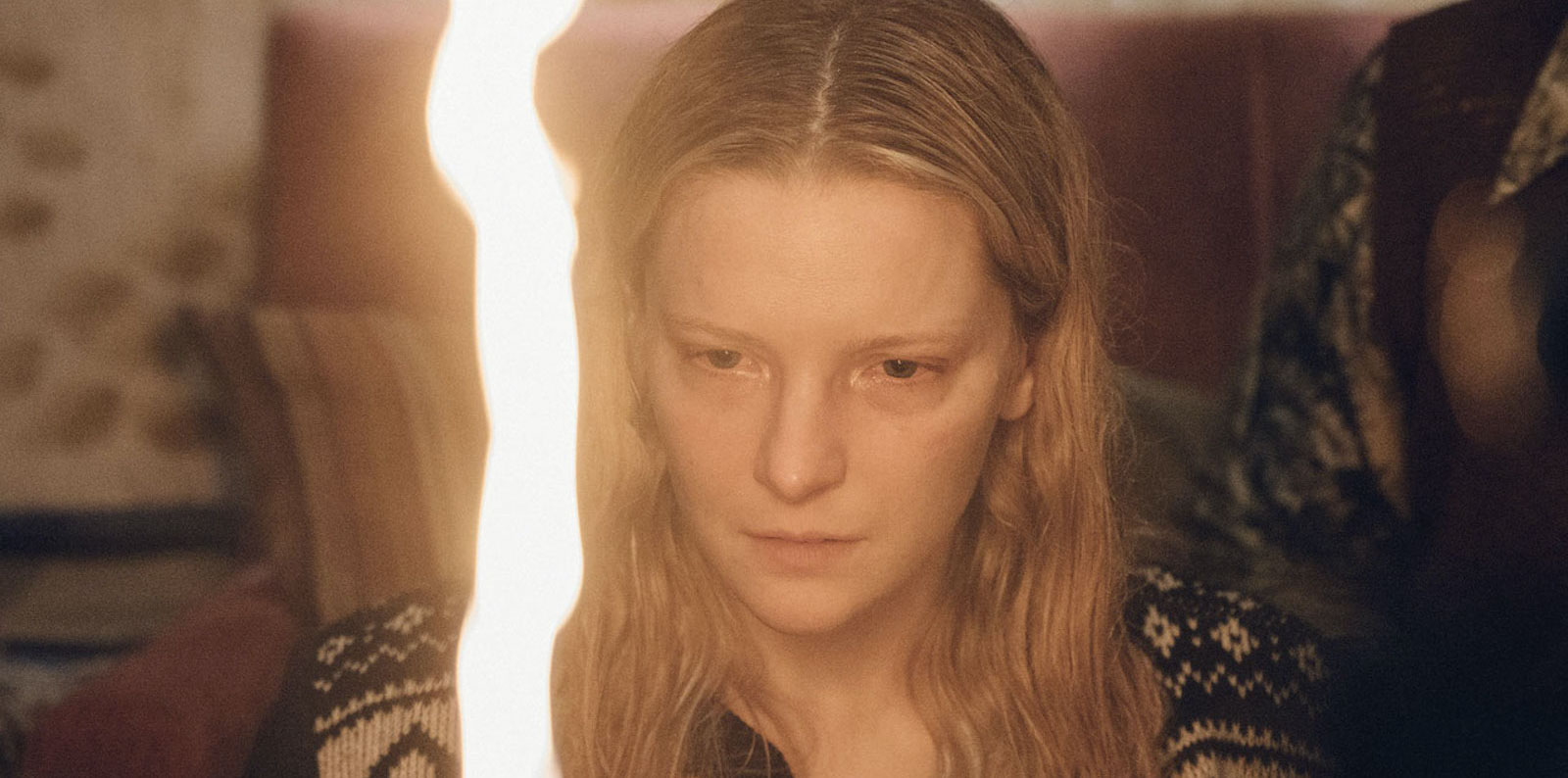
"…a fantastically enigmatic horror film done beautifully well."
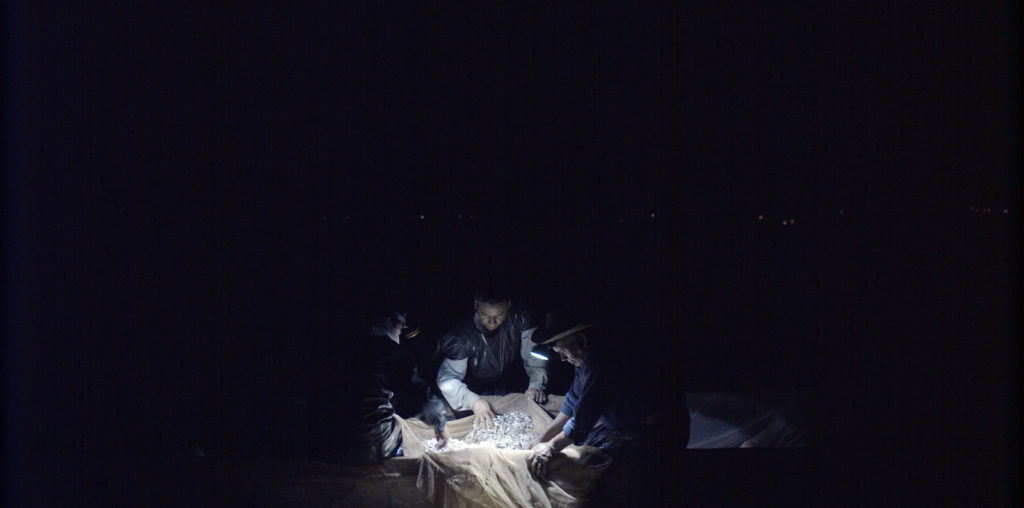
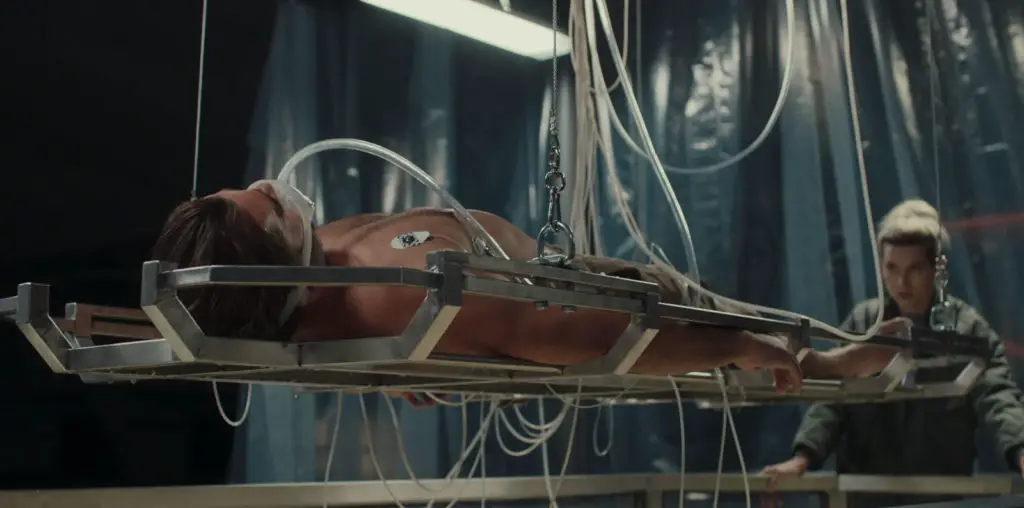
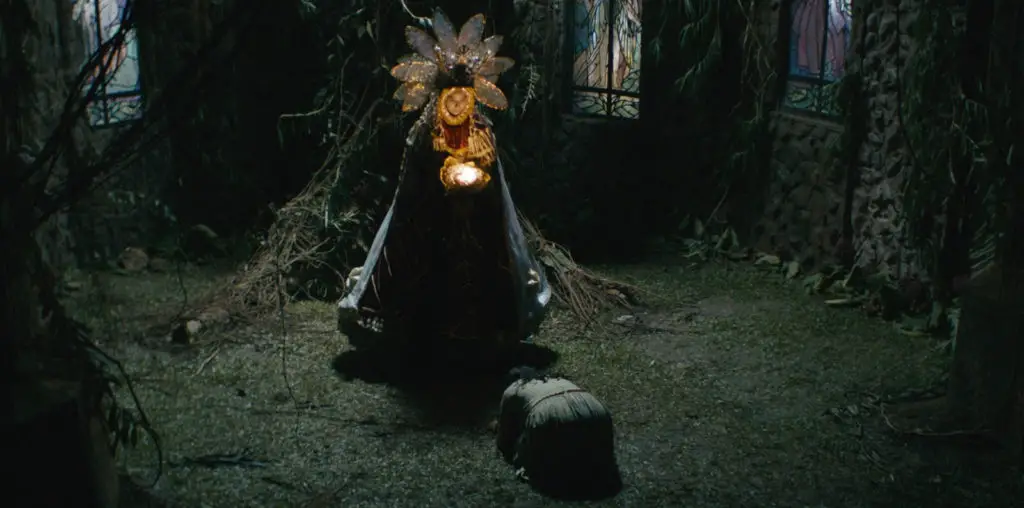
… [Trackback]
[…] Find More to that Topic: filmthreat.com/reviews/starve-acre/ […]
… [Trackback]
[…] Informations on that Topic: filmthreat.com/reviews/starve-acre/ […]
[…] Film Threat […]